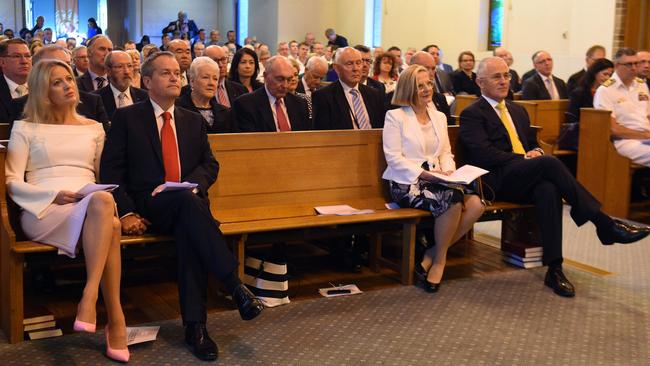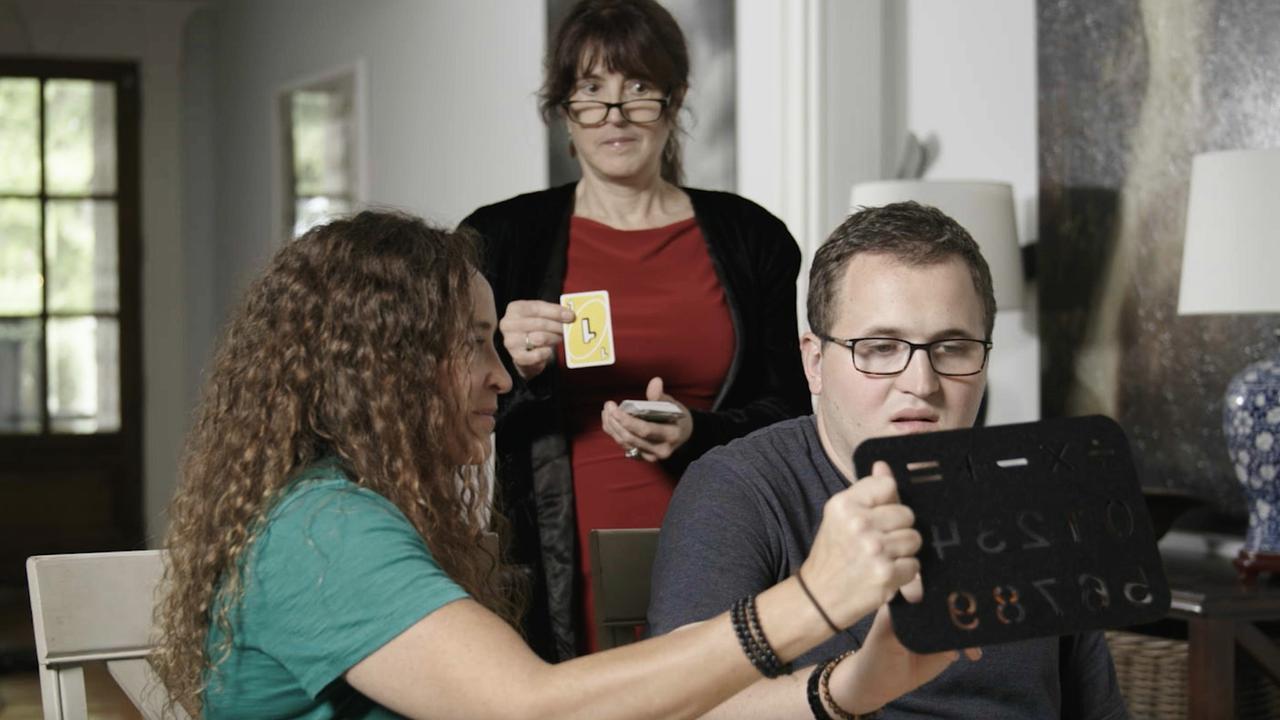God Is Good For You by Greg Sheridan; Fountain of Public Prosperity
With barely half of Australians now following Christianity, two new books argue its social and political significance.

In 2002 a scholar from the Chinese Academy of Social Sciences commented on the causes of the West’s long-term global pre-eminence: “We studied everything we could from the historical, political, economic and cultural perspective. The Christian moral foundation … was what made possible the emergence of capitalism and then the successful transition to democratic politics.’’
He added for emphasis: “We don’t have any doubt about this.”
This remarkable statement, coming as it did from an arm of the ruling Communist Party, underscores a momentous geopolitical phenomenon of the past two generations: the steep decline of Christian belief across the West.
Australia is typical. In the 2016 census, a bare 52 per cent identified even nominally with Christianity, down from 86 per cent as recently as 1971.
Various questions loom large. What has caused this decline? Is it reversible? And why does it matter? Two impressive books, different in method and style, offer plenty of food for thought.
Greg Sheridan will be familiar to readers of The Australian as its longstanding foreign editor. I should disclose, too, that in his new book, God is Good for You, he makes generous reference to my own books about Christianity.
As you would expect from a journalist of Sheridan’s pedigree, his prose is polished and engaging. The tone throughout is enthusiastic but gracious; there are flashes of wit; the breadth of his erudition is formidable. There are some nice personal touches, including a tender discussion of the Sikh faith of his wife and sons. Sheridan himself is a practising Catholic.
In the book’s first half he traverses a lot of ground, including the classic arguments for the existence of God, miracles, the science versus religion debate, and the fiendish theological problems of suffering and (premature) death.
He sketches Christianity’s massive contribution to Western civilisation. A chapter heading must give the flavour: “What did we ever get from Christianity — apart from the idea of the individual, human rights, feminism, liberalism, modernity, social justice and secular politics?”
Nothing here is — or at least should be — seriously contentious.
Sheridan’s most original contribution comes in the book’s second half. He is a political junkie and, though an avowed conservative (and long-time friend of Tony Abbott), has built up a career’s worth of contacts on both sides of the party-political divide.
Utilising those contacts, he conducts a series of fascinating interviews about religion with some of our recent and current national leaders: Abbott, Kim Beazley, John Howard, Kevin Rudd, Peter Costello, Bill Shorten and Malcolm Turnbull. All profess to believe in God.
Here’s Turnbull’s conception of religion: “I think of [it] as a mystery. Just as poetry is in many respects that which cannot be explained. … The idea of the selfless love of Jesus as a deep mystery penetrates I think close to the heart of Christian belief.” And here’s Bill Shorten’s: “I know when I watch my children that there’s something bigger than each of us individually … [T]here are deeper intensities at work. Love, unconditional love. Gift, the gift of life.”
Sheridan also speaks to some important figures just below the top rungs of the federal political ladder, including Penny Wong (“I don’t remember ever having the sense that I denied the existence of God”) and Kristina Keneally (“Politicians are more likely to be churchgoing than the population as a whole”). He extracts some notably thoughtful musings from Andrew Hastie, former elite SAS soldier and now Liberal MP for Canning: “My view that the world is broken is the backdrop to the tragedy in Afghanistan. Remember that this world is just a shadow of the world to come.”
Stuart Piggin and Robert Linder’s The Fountain of Public Prosperity is a meticulous, magisterial work of scholarship, the product of several decades of trans-Pacific collaboration. Piggin is a conjoint associate professor at Macquarie University in Sydney, with specialties in history and theology. Linder, the distinguished professor of history at Kansas State University, has visited Australia each year since arriving on a Fulbright scholarship in 1987.
Their central thesis — resoundingly proved — is that “evangelical beliefs and ideals [have been] a major presence in Australian history”. What is more, they argue, that presence has been overwhelmingly for the good.
It is a big claim, encompassing numerous sub-claims. Among the most compelling is that evangelicals were the chief agents of the humanitarian impulse towards indigenous peoples in the colonial era. They were also a significant force in the civilising of Australian capitalism and the first wave of feminism (votes for women). Furthermore, “religious feeling made federation possible”.
Evangelical Christianity is a subset of Protestantism, but it spans adherents of all denominations. Piggin and Linder adopt this four-pronged definition: “Conversionism, the belief that lives need to be changed; activism, the expression of the gospel in effort; biblicalism, a particular regard for the Bible; and what might be called crucicentrism, a stress on the sacrifice of Christ on the cross.’’
Crucially, evangelicalism cannot easily be pigeonholed into contemporary ideological categories. Thus, people as diverse as Tim Costello (chief advocate of World Vision Australia, a Baptist pastor) and John Anderson (deputy prime minister from 1999 to 2005, a lay Anglican) fit the label.
The common thread is passionate, can-do commitment to causes worthy of the biblical Jesus. (Among Sheridan’s interviewees, only Hastie and Mike Baird, NSW premier from 2014 to last year, could confidently be described as evangelicals.)
One of the greatest evangelicals was John Wesley (1703-91), the founder of Methodism. That is why Piggin and Linder begin their study in 1740, at the start of the Wesleyan religious revival in England. Prominent exemplars of evangelicalism from early Australian history include Elizabeth Macquarie (influential wife of the most pivotal early governor of NSW), John Dunmore Lang (father of Presbyterianism in Australia and a radical social reformer), Charles La Trobe (first lieutenant-governor of Victoria) and George Fife Angas (founder of South Australia).
Another excellent case study, much less well known, is Thomas Holt, co-founder in 1848 of the AMP Society. Along with figures such as John Fairfax and David Jones, Holt was a pillar of ethical liberalism in the nascent Sydney business community. As Piggin and Linder show, Holt lived out the evangelical creed that “the moral economy [is] integral to the business economy”. The AMP’s recent scandals show what happens when the two are divorced.
A vital caveat is needed here. As Piggin and Linder acknowledge, the role of devout Catholics in Australian history has also been of huge import. Indeed, in their view the theme of destructive religious sectarianism can be exaggerated. But the Catholic contribution to Australia is already well-chronicled by such eminent authors as Patrick O’Farrell and Edmund Campion. Sheridan’s name can now be added. But there is one point on which I disagree with him strongly. Ever genial and fair-minded, he proffers this opinion:
I don’t think Christianity adjudicates among mainstream policies on most issues. So within a democracy, authentic Christians could be centre left or centre right or something else. Only the extremes would be incompatible with Christianity.
Yet the opposite is closer to the truth. Many of the most consequential Christians through history were, in their day, “extremists”. St Paul was an extremist. So were Wesley and William Wilberforce and JD Lang.
The key point is that authentic Christianity is not pallidly “centrist”. Its supernatural claims are drastic and universal. On some sociopolitical issues it is “far left”, on others “far right” (that is, by secular standards). As CS Lewis wrote, a true Christian society would strike modern observers as markedly conservative on matters of public and private morality, but markedly progressive on matters of economic and racial justice (and, I would add, the non-use of violence).
That, broadly, is the position of the Vatican today under Pope Francis. Likewise, as Piggin and Linder emphasise, evangelicalism has always been a radical, creative force.
Since Federation, Australia has had a good many prime ministers of meaningful religious faith. Founding father Alfred Deakin was a fervent deist, Jim Scullin (1929-32) and Joe Lyons (1932-39) were immaculate Catholics, Rudd is a serious ecumenically minded Christian — but never a fully fledged evangelical Protestant. The closest, perhaps, was the first great Labor prime minister, Scots-Presbyterian Andrew Fisher (1914-15). No doubt Piggin and Linder will take up this theme in their forthcoming second volume, Attending to the National Soul: Evangelicals in Australian History, 1914-2014.
The decline of faith in Australia and the West is unlikely to be arrested through prevailing political channels. And some factors in secularisation, such as unprecedented material affluence, seem here to stay.
But strategic withdrawal from the public square (the so-called “Benedict option”) is a cop-out. And wallowing in a sense of victimhood, as too many comfortable Western Christians are wont to do, is a turn-off. No one likes whingers.
Both Sheridan (explicitly) and Piggin and Linder (by inference) suggest that the best immediate hope lies with better education of the young. Sheridan nails it — “part of the crisis of faith is a crisis of knowledge”.
Though universal state schooling in Australia was a treasured achievement of evangelicals (read The Fountain of Public Prosperity if you doubt it), the present system is steadily killing the Christian faith, if more by omission than commission. Reforming the state school curriculum would be a herculean task. There is a more realistic opportunity in independent schools, which educate one-third of our children. But, as Sheridan insists, “the Christian churches [must] use Christian schools more effectively”. Tokenism is now inexcusable.
Perhaps he will be accused of extremism, but in the best evangelical (and Chinese communist!) tradition, Sheridan poses this challenge: “Can any school really call itself Christian if every student does not basically have one period of religious instruction every day? What are they doing that is more important?”
Roy Williams’s books include Post-God Nation? and In God They Trust?: The Religious Beliefs of Australia’s Prime Ministers 1901-2013.
Greg Sheridan will discuss his book at the Centre for Independent Studies in Sydney on Thursday evening. Details: www.cis.org.au/events.
God is Good for You: A Defence of Christianity in Troubled Times
By Greg Sheridan
Allen & Unwin, 358pp, $32.99
The Fountain of Public Prosperity: Evangelical Christians in Australian History, 1740-1914
By Stuart Piggin and Robert D. Linder
Monash University Publishing, 674pp, $49.95 (HB)


